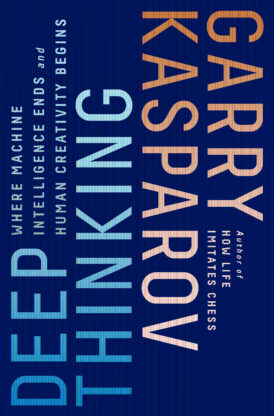A little-noticed paragraph in the recent U.S. intelligence community report about Russia’s hacking of the U.S. elections makes me wonder whether Moscow’s next step will be to conduct cyber-espionage campaigns to help elect authoritarian populist leaders in Germany and France’s elections this year, and in Mexico’s 2018 elections.
It sounds like the plot of a political thriller. But the Jan. 6 joint statement of the CIA, the FBI and the National Security Agency says Russian President Vladimir Putin ordered cyberattacks to help Donald Trump win the U.S. presidential election, and Russia will continue “future (voting) influence efforts worldwide, including against U.S. allies and their election processes.”
The statement did not elaborate but states Russia has a “long-standing desire to undermine the U.S.-led liberal democratic order.”
To do that, Putin has stepped up his cyber-espionage activities, hacking the Democratic National Committee’s computer networks and handing over thousands of its emails to WikiLeaks, including many pertaining to former Democratic candidate Hillary Clinton’s campaign. In addition, Russia planted fake news in U.S. social media to hurt the Clinton campaign, it said.
After reading the U.S. intelligence community’s statement, I called Garry Kasparov, the well-known Russian dissident, head of the New York-based Human Rights Foundation and former world chess champion, to ask him why Putin might have wanted to influence the U.S. elections in Trump’s favor. He cited several possible motives.
First, he said, Putin is facing a dire economic situation in Russia and needs to project an image of strength as a world leader capable of challenging the United States and even influencing its elections. “That gives him a lot of credibility in the eyes of his cronies,” he told me.
Second, for geopolitical reasons, Trump is the perfect U.S. president for Putin because Trump’s public criticism of NATO, the European Union and other organizations helps undermine the institutions that defended security, peace and democracy in Europe in recent decades.
“Putin realizes that, for his imperialist agenda, organizations like NATO and the European Union are a stumbling block,” Kasparov told me. “He wants to undermine and destroy them, and Trump was the perfect candidate to weaken them.”
Third, Putin may like Trump because the U.S. president-elect “has no democratic instincts,” Kasparov said, referring to Trump’s frequent kind words toward Putin and other dictators around the world.
Fourth, since Trump has not disclosed his tax returns, we don’t know whether he got Russian money to bail him out of at least four business bankruptcies nor whether he made any business deals in Russia when he went there to present his Miss Universe pageant in 2013, Kasparov said.
Trump said Wednesday, “I have no (business) deals in Russia.” But Trump made several trips to Russia in search of business deals and has made more than $100 million from selling apartments to a Russian oligarch, according to a CNN report.
When I asked Kasparov whether Putin may try to influence the upcoming German, Italian or Mexican elections, he said, “I don’t know if Mexico is so important for his geo-political agenda, but if it is, of course he will do it.”
“As for Germany, it’s already happening there,” he said, adding that according to German intelligence services, Russia has tried to undermine Chancellor Angela Merkel. “And Putin’s digital footprints are all over the (British) Brexit vote, and in Italy’s referendum in support of the ‘no’ vote against Prime Minister (Matteo) Renzi.”
My opinion: I wouldn’t be surprised if Putin tried to help elect authoritarian populist leaders in Germany, France and even in Mexico. His motives may be very simple. If Trump rules as a populist authoritarian leader and other major Western democracies elect similar figures in upcoming elections, nobody will have the moral authority to criticize Putin for being a populist authoritarian leader.
Obama waited too long to warn the world about Russia’s cyber threat. Unless Trump starts taking it seriously and champions America’s principles of democracy and human rights — as most of his Democratic and Republican predecessors have done but he has consistently pooh-poohed until now — Russia will continue influencing foreign elections and putting Western democracies at risk.
Andres Oppenheimer is a Latin America correspondent for the Miami Herald


